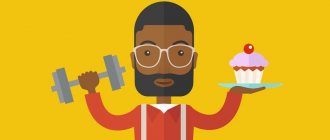People who suddenly decide to start reading often face a serious problem - they cannot find the strength to do it regularly. Having a strong motivation, a person thinks that nothing will stop him from spending time with literature every day. And a week later he wonders how to force himself to read books. If you give up everything and try again in a month, six months or a year, the result will most likely be the same.
The process of reading, which brings pleasure to many, becomes a challenge for some. Such people should pay attention to several important tips that will show how to accustom themselves to reading. By using them, you will learn to get real pleasure and benefit from spending time with any literature.
Choose
It is important to choose the right literature. You should not make spontaneous purchases, hoping for an annotation. It is recommended to study several reviews and then make a purchasing decision. It is not recommended to choose only from popular novels, because... fame is no guarantee of useful and interesting reading.
The best approach would be to consider representatives of your favorite genre or a proven writer. This will keep risks to a minimum. But they need to be “diluted” by reading something new, and they should be the basis.
Make a list
Making a future reading list is a good way to force yourself to read books every day. It should consist of dozens of options, and they should be sorted by priority, but not so strictly, but with the ability to choose one of the first.
The available options need to be checked. This means reading the abstract, reviews or testimonials, as well as skimming several pages. For convenience, you can make tags by genre, author or complexity.
Go shopping
Regularly visiting bookstores is one of the best ways to start reading more. It is especially effective for those who already enjoy spending time with a book, but is also suitable for those new to this activity. Walking past the shelves, it is impossible not to become interested in books. It will be easy to choose several interesting options.
The atmosphere that reigns in such stores makes you feel a craving for literature. It will not only make you return there again and again, but will give you a unique feeling that you need to read more. The main advantage is that there will be a desire to do this.
Form a Habit
Human life consists of habits. The more positive, the better. Habit is what beginning readers lack. It is important to develop it gradually, slowly. To do this, you need to read for 20 minutes every day. After a week, the amount of time can be doubled, and then tripled.
You cannot interrupt the process before the time that has been allocated. If there is an urgent need to do this, you should come back later and finish what you started. This is the only way to achieve results.
Use your peripheral vision
Learn to read quickly.
Using peripheral vision helps reduce eye fixations by allowing you to see, read, and process more words at once.
Using peripheral vision to read, you look into the space between two words rather than at one specific word, try to read both words at once, and then move your eyes to the next pair of words.
Michael Benninger of Blinklist explains:
“To achieve true reading proficiency, make the most of your peripheral vision. You can develop this skill by briefly looking at phrases and then trying to repeat them. This is the basis of the speed reading method, which involves directing your gaze to the center of the line rather than focusing on the words at the edges of the page.”
Read in passages.
A passage is anywhere from 4 to 16 words that you can cover in one glance. By reading in chunks, you naturally increase your speed because you are not slowed down by vocalization (speaking individual words to yourself).
This is interesting: Our Oleg Efremov
Create the conditions
When you want to make reading a part of your life, you need to pay more attention to the conditions. The maximum possible silence and solitude is the key to success. The reader should not be disturbed by extraneous sounds, electronics (TV, computer, telephone), people or pets. It is important to focus on the text.
You can, of course, and even need to, read on the way to work. But in cases where a person has a choice, he should prefer comfortable conditions. You need to choose a place where it is warm, cozy and comfortable.
You should think about time in advance. You can read as soon as possible, but there should be one specific time when you are absolutely sure you can read. It is better to do this in the morning, while your head is free and relaxed, but evening is also perfect - the main thing is that there are suitable conditions.
50 page reading rule
The fact that any book you read increases your level of intelligence is an undeniable fact. So count how many books you need to become twice as smart. Only 100. Quite doable.
Here you should resort to the 50 page rule. Read the first 50 pages, and if the book drags on with boring language and plot, just put it down. Maybe later you will return to it or give it to someone who will like it more.
Only a few percent of the books published each year turn out to be worthwhile. But even this figure will be unaffordable for you. Therefore, use this rule and read only what will hook you.
Consider the volume
Even an interesting book risks being put aside and forgotten forever. Some people, thinking about how to start reading more, pick up a major novel. It may even be relevant and captivating, but in the end it will still end up unread because the reader did not take into account its length. You should start with not too large works, and not choose a thousand-page novel.
The constant appearance of the same characters gets boring. Even great interest can fade for this reason. It is optimal to start with 200-400 pages
.
Reading disorders: dyslexia and alexia
I had a friend who walked past the “Bread” sign and read “CPSU”, it was written “Bank”, he read “Bath”, he wrote the word “comb” as “roseska”. In the 90s, he was only 58 and everyone laughed at his absent-mindedness, although he worked as the chief accountant of one of the leading developers in the city, and before that he held a serious position in the regional committee and was generally an intelligent and pleasant conversationalist. There were such guys at school too - as a rule, they could not cope with problems in mathematics, physics and biology only because they could not quickly read the terms of the problem. And that was it too - dyslexia, which in some is accompanied by dysgraphia (omission of letters, poor memorization of words, errors in foreign languages). Years later, some people still have the disorder, while others have practically disappeared (maybe partly thanks to auto-correction?).
Dyslexia is a partial inability to master reading skills associated with dysfunction of certain areas of the cerebral cortex. It is a neurobiological disorder that is primarily genetic and can also occur due to injury, disease, or other effects on the brain. Please note that dyslexia (as well as the complete inability to read - alexia) is not laziness, reluctance, or a character trait of a child or adult. This disorder is a disorder of psychological development (included in ICD 10 (R48.0), and specific disorders of learning skills are even identified as an independent nosological unit - “Specific disorders of the development of learning skills” (F.81), including “Specific reading disorder" ( F81.0; dyslexia)). If we are talking about dyslexia that is not associated with injury or illness, then it manifests itself at primary school age, when the child intensively masters written language skills (reading + writing). Unfortunately, at least 5-10% of schoolchildren have difficulty reading. It's a lot.
Such children, with complete intellectual integrity and physical health (vision, hearing, absence of traumatic brain injuries), can lag behind in almost all subjects - because they simply cannot quickly and correctly read the task or the text of the problem. Dyslexia comes in different degrees, can be corrected in certain forms, but always remains with a person for life.
The picture shows a side section and a top view of the brain of a normal person and a person with dyslexia. In layman's terms, the red dots are the zone responsible for the articulation and analysis of the words of your speech (Broca's area), the blue and green dots are the analysis of speech and the perception of word forms as integral units. Green and blue together - the parieto-temporo-occipital region, which, in the normal case, is active in the left hemisphere
Again, do not confuse dyslexia with inattention or attention deficit hyperactivity disorder (ADHD on Habré) - a diagnosis requires consultation with a neurologist, psychologist and speech therapist. Also, you should not work independently with a child or adult (including yourself) - an initial consultation with a specialist is required.
You can read about the mechanisms of dyslexia in this article, and about the types of alexia here.
Remember the fun
It is impossible to force yourself to read every day if the thought of it causes negativity. This must be done in such a way as to feel pleasure, comfort and freedom. If you are not in the mood, then the idea should be postponed until later. You need to pick up a novel and get down to business with desire. Otherwise, it will turn into a routine, and there is absolutely nothing good here.
This also applies to those cases when negativity arises only with a certain writer’s creation. You can’t force yourself to finish reading something you don’t like, hoping for changes by page 200. If you really want to, you can give him a second chance, but later.
The only exception can be the first attempts to join the literary world. They often cause difficulties; many people become bored or find it difficult to concentrate. Then you can put a little pressure on yourself to overcome these problems and achieve results.
Realize the benefits of reading
Everyone knows that reading is good, but many underestimate the benefits of this process. The author of books, articles and monographs N.A. Shcherbakova writes that the reading process is a way of self-knowledge, reflection, an opportunity to harmonize the inner world, systematize norms, knowledge, values, needs and behavior.
Reading:
- awakens the imagination, expands the worldview;
- stimulates thinking, improves brain activity;
- develops intelligence, increases the level of knowledge;
- enhances the ability to concentrate;
- promotes self-development;
- enriches vocabulary, develops speech;
- helps to correctly formulate sentences;
- relieves stress, improves sleep quality.
Don't force yourself to read. Try to put aside prejudice and hostility. Psychologies notes that when reading ceases to be an obligation or a necessary part of the learning process, the reader experiences a sense of freedom won from routine.
Don't tackle everything at once
Some are sure that to read more than 1 book at one time. Some people prefer not to follow this rule, while others support it 100%. Both categories of people are right. However, there is also a third one - its representatives take on a large amount of fiction and scientific literature at once. And so they just make a mistake.
It is recommended to take on 1-3 books
straightaway. If you exceed this amount, then it will be simply impossible to follow the plot or explanation of something serious, and in addition, severe boredom will appear. The optimal combination would be a work of fiction with a popular science book.
What benefits does regular reading give?
In addition to the usual reading pleasure, reading fiction and educational literature has other beneficial effects. Let's highlight the most important:
- Development of imagination
.
As you read, you involuntarily draw images in your head, trying to imagine what the characters and the environment in which certain events take place look like. Thanks to this, regular reading significantly develops creativity and imagination, and in the future you use this in your work without even noticing. - Expanding your vocabulary
.
Any person knows many more words than he uses in conversation. Reading can significantly bridge the gap. As you read, you constantly see how different authors formulate ideas using different words. This makes it easier for you to use rare words in conversation. - Memory improvement
.
Reading any literature is associated with memorizing information. When you finish reading a three-hundred-page detective novel, you have to keep a lot of facts in your head in order to solve the main mystery of the work together with the main characters. This is a pleasant and effective exercise that significantly improves the quality of memory. - Keeping your brain in good shape
.
Reading is an excellent workout for the brain, allowing you to keep it in good shape. Read every day and your thoughts will be clear and pure. And people who constantly read are much less likely to encounter sclerosis and other age-related diseases. - Increased concentration and attention
.
Almost every person has encountered inconvenience due to their own absent-mindedness. This is where reading can help, as it develops the ability to concentrate on a specific task.
Reading is a great way to combine business with pleasure. The tips below will help you consolidate this habit.
Take your time
Many beginners think about how to learn to read a lot and quickly. It’s one thing to study, and another thing to constantly think about it. Such thoughts lead to a decrease in the quality of assimilation of the text, which has a bad effect on results and pleasure. There is no need to rush, especially if you are only taking on your first novels.
It is important to experience the book, to develop a habit, to start enjoying it. Only then can you get acquainted with speed reading techniques. More on this below.
Is speed reading a bad school game?
The most difficult time for children, even with very mild dyslexia, is passing the “school standards” for reading techniques. They are rarely able to reach the standard and are embarrassed to announce the results next to their classmates who are jabbering away from their sheets. And, it would seem, well, people read and read - it’s high time to get rid of this strange relic of reading for a while, because you need to read for understanding! But it's not that simple. Speed reading plays a significant role in the development of a child (remember about the creation of new neural connections?) and is necessary not just as a mini-test on the windowsill with an hourglass (I wonder if this is the case now too?), but as a full-fledged school course.
- The first reason is obvious and easy to guess: a fast reader will read more material per unit of time. Thus, he will quickly learn to select the necessary information and distinguish good literature from bad (yes, this happens).
- A student who reads quickly is less likely to fall behind, since he will have time to master all school material, including additional sources. During the lesson, he will have no problems with “grasping” the terms of the task, dictation (it is also important to re-read and check for yourself), or a test.
- The correct speed reading technique develops diction, speech becomes clear and at a good pace. But this only applies to proper training: if a child is forced to read many characters per minute, he can literally choke on words, switch to a whisper, and ultimately transfer these “skills” into everyday speech.
- When a child or adult reads at a good pace, the likelihood of being distracted from a lesson, book, textbook, technical documentation, etc. is lower, since we “get involved”, the brain begins to enjoy reading and motivates the owner to continue the pleasant task (if you know what is a “book hangover”, your brain knows how to get dopamine from reading).
- Speed reading as a speech function is associated with thinking, imagination, oral speech and memory. If the skill of speed reading is formed correctly, then the memory of such a reader is noticeably better.
- Finally, speed reading at its core is a process of continuous switching of attention, an instantaneous reaction of the brain to information. This can have a great impact on a person's multitasking.
However, despite all the advantages, speed reading in an adult should not be an end in itself. If you are already an accomplished specialist and like slow, thoughtful work with literature and technical documentation, that’s also great. Because for adults, reading speed is more a matter of habit and temperament, but for a child it is the most important factor in psychological and intellectual development.
Communicate
Discussing a novel you have read is an important component of the entire process of getting to know it. This will allow you to express your opinion and hear someone else’s, which can open up a new perspective on the work, as well as radically change your ideas about some moments from it.
If among your friends there are no people who read, then you can join some club where you can find new friends. Communication with them will give you even more motivation. And the opportunity to receive a list of recommendations will fuel interest in making new acquaintances. Read more literature, and you will become even more interesting in the eyes of others.
Why do most people read little?
- Most of us read our first books at school. No one asks children what they are interested in, and the classic stories and novels provided in the program do not instill a love of reading in everyone.
- Parents force their children to read, prohibiting them from playing and doing other things until the prescribed reading limit has been read. This approach also discourages the child from reading.
- Children are often not given truly interesting books that they themselves would enjoy reading.
- Many people are simply too lazy to read. Therefore, to implement such a useful habit as reading into life, you need to try to get rid of laziness.
- Many modern people are sure that time is an extremely scarce resource, so they deny themselves the opportunity to read.
- Reading and education are not in fashion today. To look erudite, you need to know about the latest movies and read popular public pages on social networks. And today it is customary to quote not classics, but status messages from the same social networks.
Despite all these obstacles that alienate the modern generation from books, we should try to read as much and as often as possible.
Don't miss out on opportunities
It often happens that a person does not have time. But it only seems so at first glance. If you think about it, there is always time. While you are on the road, having lunch, taking a bath, sitting in line, waiting for someone, you can always read. You can buy a small format book to carry with you everywhere in any store.
Gadget lovers can buy an e-book. Modern models do not have a negative effect on the eyes, have a large memory capacity and are very mobile. It is convenient to use both at home and anywhere else.
Reading and the Brain: Neuroscience
Reading is a young human skill, so it is still not unconditional, but comes to each of us in the learning process. The skill of reading is not given at the genetic level, that is, it is much easier to imagine a person who cannot read at all than one who cannot speak at all (being healthy and intellectually preserved in society). The development of reading and writing by mankind is a relatively short period for human evolution: proto-writing arose in the seventh millennium BC, and the skill of reading as such began to appear only 5 thousand years ago (the oldest discovered library is 2.5 thousand years old). For the brain as a biological structure, this is not so much.
Reading is a speech process (and like any speech process it is a cognitive-mental activity of a person), which refers to the new higher reflex functions that arise in an individual during learning. From this entire paragraph we draw three important conclusions: 1) reading needs to be learned; 2) reading and speech are clearly somehow connected; 3) reading is a neurophysiological process; it affects brain functions.
Before diving into the light flair of anatomy and neurophysiology, let’s model the reading process as an algorithm (without details and detailed steps).
- Hands holding a book or other reading source. If the hands are not held, the body is oriented relative to the source of textual information (for example, it is positioned in front of the monitor). Skeletal muscles, motor skills, touch, smell, etc. work. — a person chooses a position and object of reading.
- The eyes and visual cortex of the brain work: visual fixation of text symbols and their identification occurs. You can read about how the eyes run over the lines (or maybe jump?) here.
- Phonetic identification of the text occurs (we “hear in our heads” what we read). Some scientists believe that in adults this stage is absent; we immediately move on to the meaning. But if you start reading a complex unfamiliar text or a text in a foreign language, you will immediately understand what is being said.
- Words and their semantic meaning are identified - hurray, we are reading something understandable. This gives us the primary meaning of the text - whether we can read it or not (what if it is in Japanese or is it Arabic script?).
- There is a perception of phrases and sentences taking into account punctuation, syntax, and text structure (“oh, this is funny, or maybe boring, or maybe abstruse”).
- The fun begins, neuropsychology gets involved. The reader interprets the text based on his concepts, principles, experience, character, using analysis, synthesis and being influenced by sociocultural factors. (“PHP in 2021, really? Yes, only shitty coders write on it! Who was JavaScript invented for? Teeek, minus, low technical level of the material” or “Oh, PHP in 2021! The old man is not giving up his position. I’ve figured out Yii, power! Plus, and karma plus." And the article is the same).
Of course, all this happens in the background, we do not realize or feel any of the stages (and children at the beginning of their education, by the way, feel and realize), but at this time the most complex processes take place in the human brain. Let's look at them superficially.
The complex structure of the human brain ensures the control and implementation of higher mental functions: perception, memory, thinking, speech, while thinking and speech are most closely related. Speech and thinking are formed and developed under the influence of the environment, society, and personality characteristics. The ability to perceive and generate speech is genetically embedded in us. Speech skills belong to the second signaling system of the brain (if anyone doesn’t remember, then the first signaling system, according to the classification of Academician I.P. Pavlov, is unconditional reactions). So, the second signaling system performs a regulatory function. But we remember that reading is a speech process, which means it is directly related to the work of the human central nervous system (CNS), it works thanks to the human neurocognitive apparatus, however, it differs from ordinary speech in a number of neurophysiological features.
Set goals, track progress
Accomplishing any serious task requires setting goals. You can set a goal for yourself to read 10 works in six months or 2 in a month. An additional incentive, for example, will be the goal of completing at least 20 pages a day. After a while, goals will seem too simple, and then they need to be made more difficult.
Keeping a log of what you read, whether on paper or electronically, is also important. This will allow you to see your own achievements, which will give you additional motivation and a sense of your own success.
Tips on how to start reading more
- Record every book you read. This will make it easier to track your progress and understand how much more you should be reading. By tracking how much you read in a month or a year, you will understand that there is not so much and motivation and even a kind of excitement will appear to increase this number. It is convenient to use reading trackers for this.
- Set a goal for the year. Everyone has their own limit. For some, 20 books a year is an achievement, while others consider 150 books a year to be insufficient. The main thing is to determine what you are aiming for. Having a goal in itself motivates action, and it is also important to correctly formulate the goal and write it down.
- Don't waste time and money on nonsense, read only worthwhile works. Selecting reading material for leisure is a very important and scrupulous process. If you don’t choose carefully, several days of your life will simply be lost. Always allow enough time to search for a good piece. View reviews, ratings, get acquainted with annotations and opinions of other authors and critics. If the first pages of a book don't pull you in, then it might not be to your taste at all. Write down a list of books you plan to read in your planner or notes on your phone, and when you go to the bookstore, don't forget about it.
- Buy a book. I mean a paper book, with a cover and other goodies. Reading a paper book is a special pleasure. They smell nice and there is no risk of being distracted by a message popping up from the messenger. But in addition, books made of flesh have a beneficial effect on the cognitive functions of the brain, since reading trains fine motor skills.
- Set yourself a daily minimum. Let it be 20 pages a day, 50, or even 100. How long can it take to read 100 pages? If desired, in just a couple of hours. But this is already depends on your goal for the year. You need to regularly increase this minimum in order to read more and more books.
- Make a list of books to read. If we are talking about non-fiction books, then it is useful to divide the list into categories related to areas in which you want to deepen your knowledge. You can be inspired by the advice of famous successful people in order to learn something interesting and new for yourself by comparing it with the person who recommended this work. Place the list somewhere conspicuous so that the question “What should I read?” disappeared immediately.
- Use a psychological trick. Imagine if there was an apocalypse in a few months, you would die, what books would you read then? This will help determine your true desires , and not what you think you should read.
- Set aside dedicated time in your schedule for reading. This will help you organize your time without sacrificing reading; rather, you will have to adjust other items so that you always have enough for books. Consider it as unshakable as going to the dentist.
- Buy and collect paper books, even if you don’t have time for them yet. They won’t run away anywhere, and will simply silently wait in the wings on the shelves. You can get into the habit of buying a book every month.
- When you need to read a book, but the process doesn’t go well. Sit with a book for a few minutes, doing nothing, with the cover closed. At some point, your hands will reach out to open the hostile book and read it.
- Read consciously. Social networks are filled with reposts of texts with enticing headlines. The number of tabs in your browser multiplies, and your ability to focus on information weakens. You read 50 articles a day, without really delving into anything, getting only a momentary thrill, and practically nothing remains in your head. To benefit from reading, you need to read according to the list. And it’s better to spend time on books that you chose consciously, rather than absorb tons of information garbage that the media shoves down your throat.
- Add some fun. Read what brings you pleasure. If a person says that he doesn’t like to read, it means he simply hasn’t found his book or author yet. Read books related to topics that interest you.
- Set a deadline for reading the book. Decide to yourself how soon you want to finish this book. And knowing a certain number, you are less likely to succumb to procrastination. It will be like a small promise made to yourself. And promises cannot be broken, even to yourself.
- Go to the library. If you need a quiet atmosphere for reading, almost all libraries have reading rooms. And if you take the book with you, libraries usually have a return period, often about two weeks. Try to read it, otherwise it will be a pity to return the book unread, or you will feel embarrassed in front of the library staff for why you are renewing the book. After all, two weeks was more than enough to read it.
- Make a bet or state your goal in some way. For example, “If I don’t finish reading 100 books by the end of the year, I’ll donate my favorite book to the library.” The Smartprogress service has such functionality as , which will help you achieve your goals.
- Organize your time. Think about what useless activities you can take a couple of extra hours of reading from. It is unlikely that scrolling through a feed or watching TV can be considered a fruitful pastime, which means this time can be given to reading.
- If you have very little time, read stories. They are easy to read in one sitting and are not very energy intensive. Chekhov, O. Henry, Edgar Allan Poe, Murakami, Twain...
- Start reading the next book on the list as soon as you finish reading the previous one. Don't take breaks between books. You need to read at least a couple of pages on the same day, so that the next day you already have the feeling of starting something, but not finishing it.
- Bonus motivation. Your surroundings may be inspired by your successes and start reading too; you will become a good example for them. This is both pleasant and useful. Especially considering how few people read books these days.
- Give yourself an incentive to read. List the advantages of reading books, what they can give you if you start devoting more time and effort to this activity. You will become more literate, it will be more interesting to have conversations with you, and you will improve your erudition. Just imagine for a moment what success you will achieve and how much new knowledge you will gain if you read 1000 quality books in the next few years. Keep a diary of your achievements and record your reading progress.
- Organize yourself a comfortable place to read. Reading in bed is not a good idea, because the bed is perceived by our brain as a resting place, which means there is a high risk that this reading will not be productive for you. Prefer a chair at the table or a sofa.
- Lighting is important. Don't jeopardize your eyesight by reading books in poor light. Moreover, good consecration will not allow you to nod off, losing the meaning of what you read.
- Read in a comfortable position. If you hunch over and generally position your body in an incomprehensible way, you won’t be able to read for long. And even if you can, your shoulders, back and neck are unlikely to thank you and may even lead to problems with blood circulation and headaches.
- Use special glasses when using the computer. They prevent bright light from irritating your eyes. Let them always be in view of the monitor so that you can reduce fatigue and preserve your eyesight.
- Take breaks every half hour. Try to alternate reading with physical exercise. In this case, the brain will rest, and the body will work a little to stay in good shape longer. Turn off all unnecessary thoughts, breathe carefully and correctly to saturate your brain with oxygen. Even just getting up from a chair from time to time will not be without benefits.
- Give your eyes a rest periodically. If you feel that your eyes are tired, do the following exercise: rub your palms and close your eyes so as to ensure complete darkness. Peer at a point in the middle of the blackness, as if trying to see something through this curtain. This will help relieve eye tension.
- Learn to speed read. At some point you will be able to tell good books from bad ones. Therefore, it is worth taking the time to learn how to speed read so that you can read as much as possible. The fast reading technique will allow you to understand most of the information at high speed. Move your finger across the book
- Cut off the left and right 15% of the page
- Read with 80% comprehension
Learn to speed read
Some people can quickly skim through a text, absorbing the information in full. Others, at the slightest attempt to speed up, begin to lose bits, which is why the picture of the novel does not appear in front of them in the form it should. Sometimes the latter manage to catch up with the former, but this happens only as an exception. How to train yourself to read every time at maximum speed, without losing a piece of meaning from the text?
There are many speed reading techniques. They are studied in specialized literature, in trainings or lessons, in individual educational institutions. Everyone has the opportunity to achieve high speed with 100% assimilation of text information.
How to learn to read faster
Everyone has their own reading speed. There is no need to strive for the results of Guinness World Record holders. You just need to increase your speed a little. Once you master the right techniques, you will be able to read faster without losing the meaning of the text.
Speed Reading Techniques
- Reading with your finger
Using this technique, we track reading speed using our finger. Move your finger along the lines as you read. Increase your speed little by little. This technique is characterized by a high degree of concentration.
- More words per glance
For faster reading, it is recommended to read a couple of words in one glance. This pace is easy to achieve.
- Fast pace
Read quickly even if you don’t have time to grasp the information, this will come with time. Your brain will adapt to the fast pace and will take in all the important information.
- Do not pronounce the text while reading
This habit is the hardest to break. Not everyone can achieve it to the end. But other techniques simply won’t allow you to speak the text. Each new step will help increase your speed.
Challenges, deadlines
The last tip is similar to setting specific goals. However, it implies a slightly different method. The difference between a challenge and a goal is that it is a test of yourself, and with a bit of excitement. After completing a task, a person passes it on to someone else. You can set up a challenge for yourself – read for 20 minutes every day.
This is what Mark Zuckerberg did in 2015. He decided that he would read one book about technology, history and culture every 2 weeks. By doing this, he gave motivation to many other people who were able to successfully complete the test.
Interesting Facts
- Warren Buffett - read up to 1000
pages a day, devoting maximum time to literature, considers this the key to success;- Elon Musk - with the help of literature, he learned to build rockets on his own in order to circumvent the issue of huge financial costs for such a service from third parties;
- Tony Robbins - mastered 700
books in all areas that could change life, was able to achieve success, become strong, having been born in a dysfunctional family;- Mark Cuban - devotes 3 hours
every day, extracting all the best ideas from any text;- Bill Gates - with an extremely busy schedule, allocates enough time to add 50 works a year to the list of completed goals.
How often do you read?
A real-life story about the importance of making the right choice and how to determine your genre and love reading
Somewhere in my second year at university, I made a friend who was an excellent student, but did not like to read at all. The maximum she could master was 1-2 sections of the textbook while preparing her homework.
At the same time, there were no apparent reasons for her dislike of reading: she grew up in an educated family and as a child loved having fairy tales read to her.
In some way, I helped change her attitude towards reading. During my student years, I was a lover of fashionable gloss, which I often shared with her.
Despite the fact that at first she only leafed through magazines, over time she began to increasingly focus on columns of advice from psychologists. This is how she and I were able to determine that psychology was her “topic.”
Having mastered many psychological books, over time she began to read others. In such an imperceptible way, my friend developed a love of reading.
The moral of the story is simple: choosing the genre of book to read is very important if you are trying to instill in yourself a love for this activity. If you find yours, you won't need to be forced anymore. After all, there are a lot of books, and there is a bestseller for you.
Important: you can develop a useful skill at any age, regardless of profession, field of activity or interests. If you didn't love reading as a child, you may not be able to love this activity as an adult.
Just don't think about what you have to read. Do it of your own free will. Set yourself up for the fact that you will become much more erudite, and new horizons will open up before you with every book you read.










